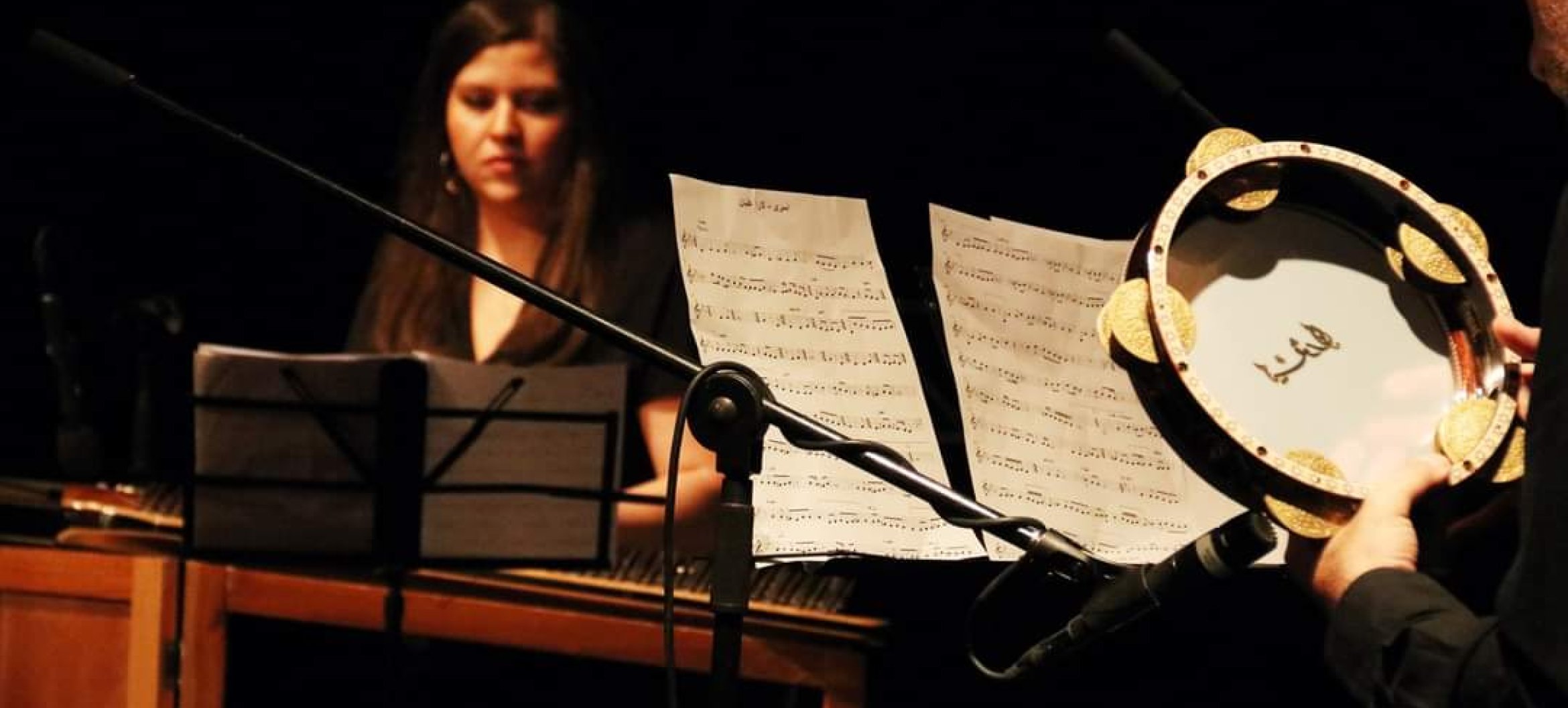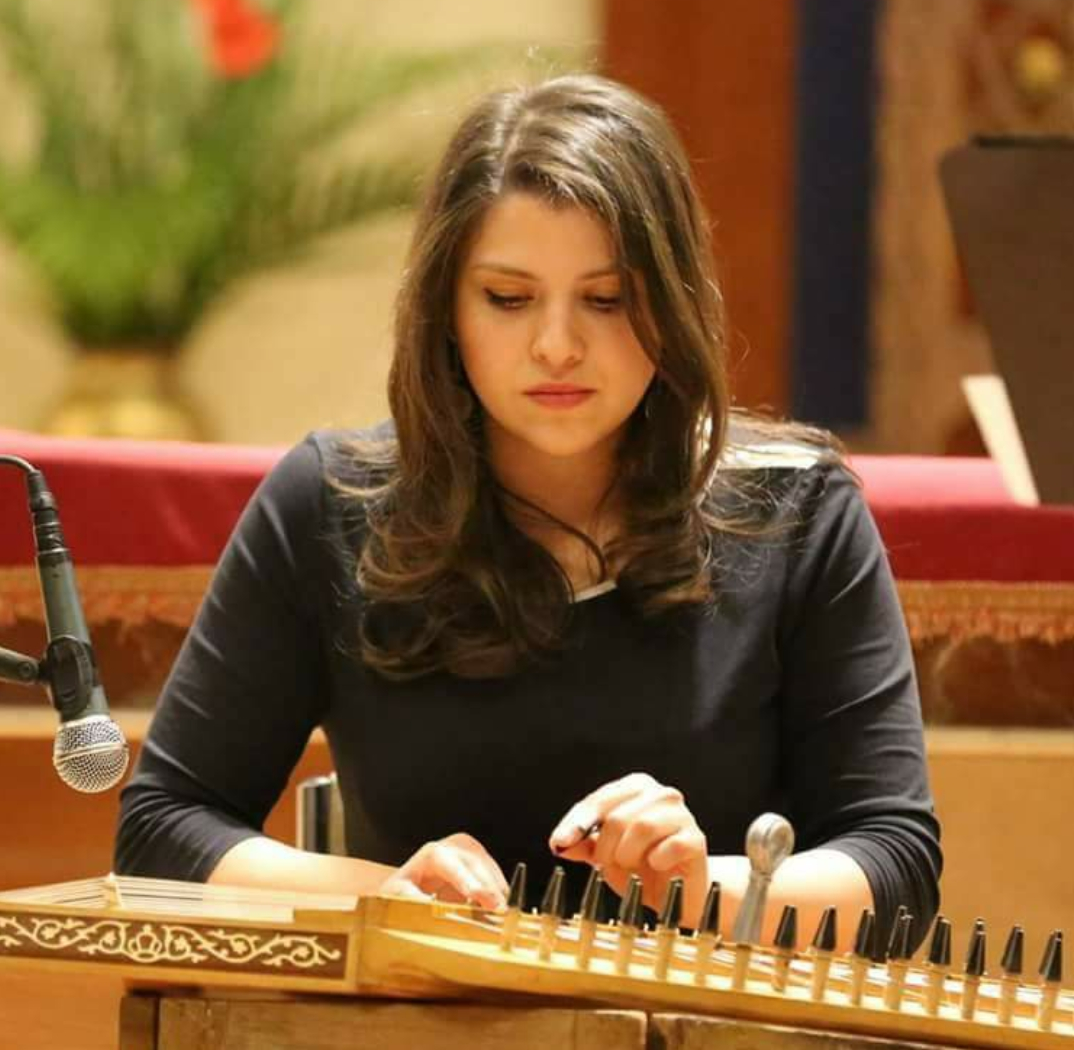Rula Barghouthi, music therapy pioneer
- Music
While originally wanting to keep music as a creative hobby, Master's student Music Therapy Rula Barghouthi realised that she was spending all her time rehearsing, giving concerts, and otherwise interacting with music. The need to continue having music in her life combined with her desire to help people led her to sign up for the pre-Master of Music Therapy - and eventually the international Master Music Therapy at ArtEZ. And she’s never looked back.

Rula followed the entire pre-Master's and Master's programme from her home country Jordan.
From qanun to accounting to music therapy
Rula is a skilled qanun player, a traditional Middle Eastern string instrument similar to a dulcimer, having played the instrument since she was 9 years old. Before ArtEZ, she also completed a Bachelor’s in accounting and studied Music Therapy at the Jordanian Music Conservatory. While studying, she kept music alive by rehearsing and providing concerts on the weekends with her band.
The only choice
For Rula, the pre-Master was a necessary start to give her foundational knowledge for the Master programme. Rula: “The online Master’s programme was an amazing choice to follow, because there is a lot of clinical work required in this Master. It was going to be very hard for me to find an internship. In the end, I will be working in Jordan so it's nice to already get experience using all the approaches that we learn in class in my own culture, in the same language I will be providing the therapy in. I think I’m lucky that COVID caused the programme to be restructured in a hybrid format; otherwise, I don’t think I could have been able to do it!”
I’m trying to help mothers of special needs individuals to gain deeper awareness of their own mental health, so that they can support and help their children in a better way.
A pioneer at home
Rula is passionate about her work and deeply committed to overcoming the practical hurdles that the introduction of a new practice can bring. In general, Rula observes that music therapy is still developing in Jordan. “It is still very new and needs time to be recognized. It can still be hard to convince people of the importance of music therapy.” She also addressed this topic in her final research project.

Rula: “I’m trying to spread awareness on music therapy here in Jordan. I have a project that originally began through ArtEZ and has since expanded into a community project here, involving the mothers of individuals with special needs. I’m trying to help mothers of special needs individuals to gain deeper awareness of their own mental health, so that they can support and help their children in a better way. It’s also beneficial for these parents to know what music therapy entails, so they can understand everything that goes on in a session and how important it is.”
Her finals work
For her final project, she wrote a thesis to determine the attitudes and perceptions of music therapy in Jordan. To do so, she developed a survey and interviewed health care providers (non music therapists), and parents of individuals with special needs of her community. The subject of the questions ranges from therapies already tried, to the level of their current knowledge of music therapy, barriers to music therapy as well what disabilities they interact with. Determining factors for the different perspectives include whether participants studied in Jordan or abroad, as well as if the parent is a primary caregiver or not.
The results
The results were telling: most people are open to trying it, something Rula herself did not expect. The barriers to seeking out music therapy are less societal and more practical; unfortunately, music therapy, as with most other therapies, is not covered by Jordanian health insurance. Therefore, any parent hoping to get their child access to music therapy would have to pay the cost out of pocket, and sometimes the cost is a prohibitive factor.
My dream is to create a multidisciplinary center in Jordan which will house a variety of therapies
Future plans
As for the future, Rula hopes to keep expanding the field of music therapy throughout Jordan and combining it with other related therapeutic disciplines. “My dream is to create a multidisciplinary center in Jordan which will house a variety of therapies including speech therapy, physical therapy, and music therapy.” If (and when!) accomplished, such a place would be the first multidisciplinary therapeutic facility of its kind in Jordan.
For Rula, it is especially important that all these therapies are offered in the same location. She remarked that since these therapies are cumulative and often unintentionally involve overlap, it would provide the maximum benefit to her patients if therapeutic work is done in collaboration. Rula: “It is easy to underestimate what a patient is capable of when we don't make a proper, thorough plan or they are overwhelmed by many different approaches."
If you’re interested, you can read Rula’s findings here.
Follow Rula


